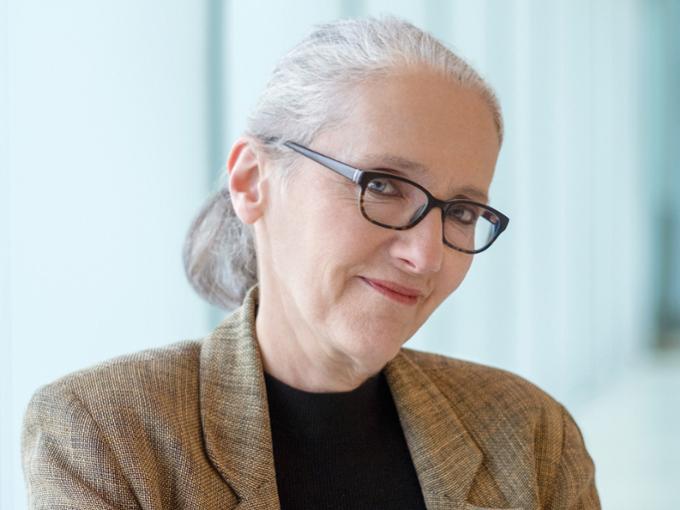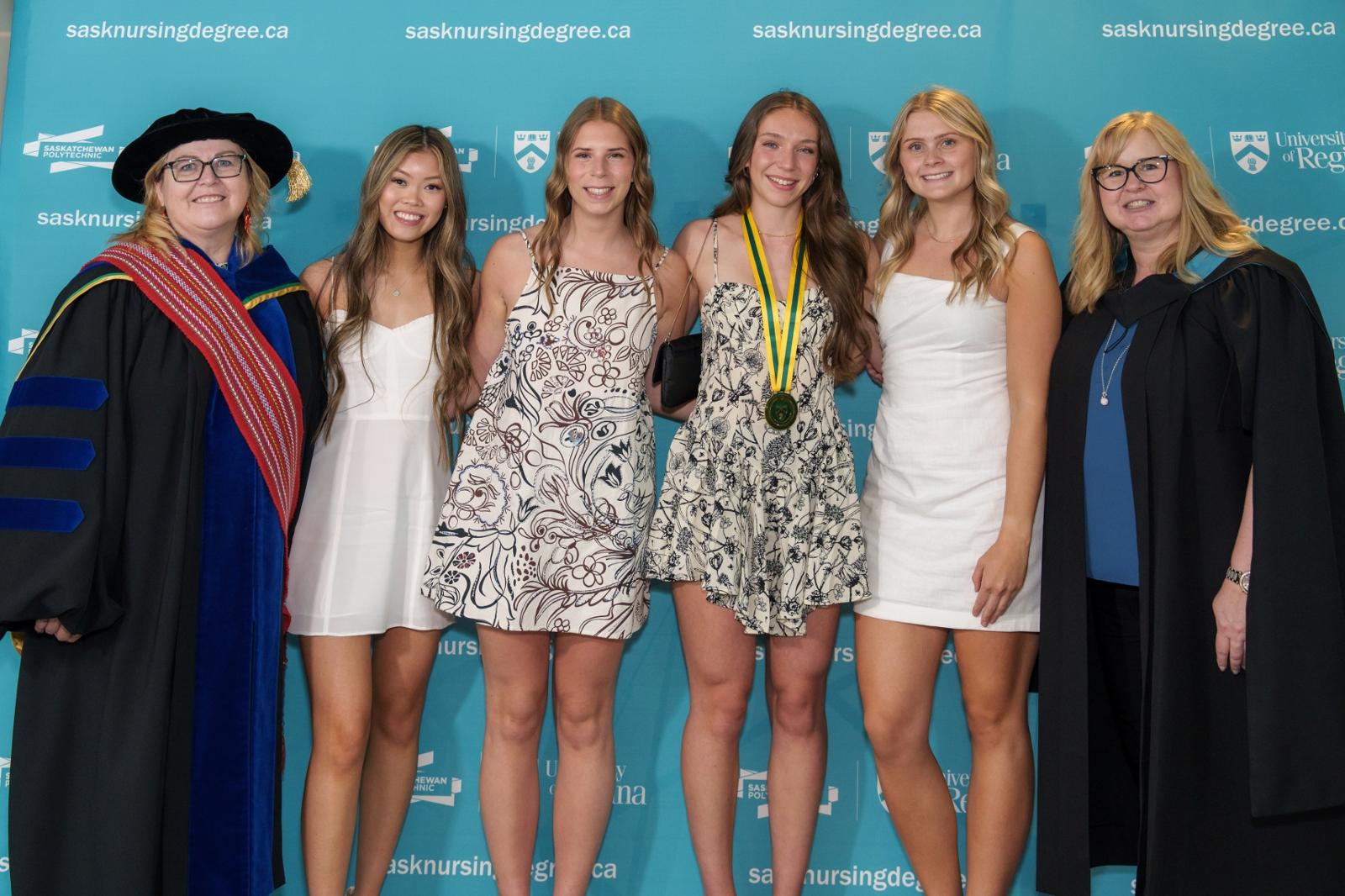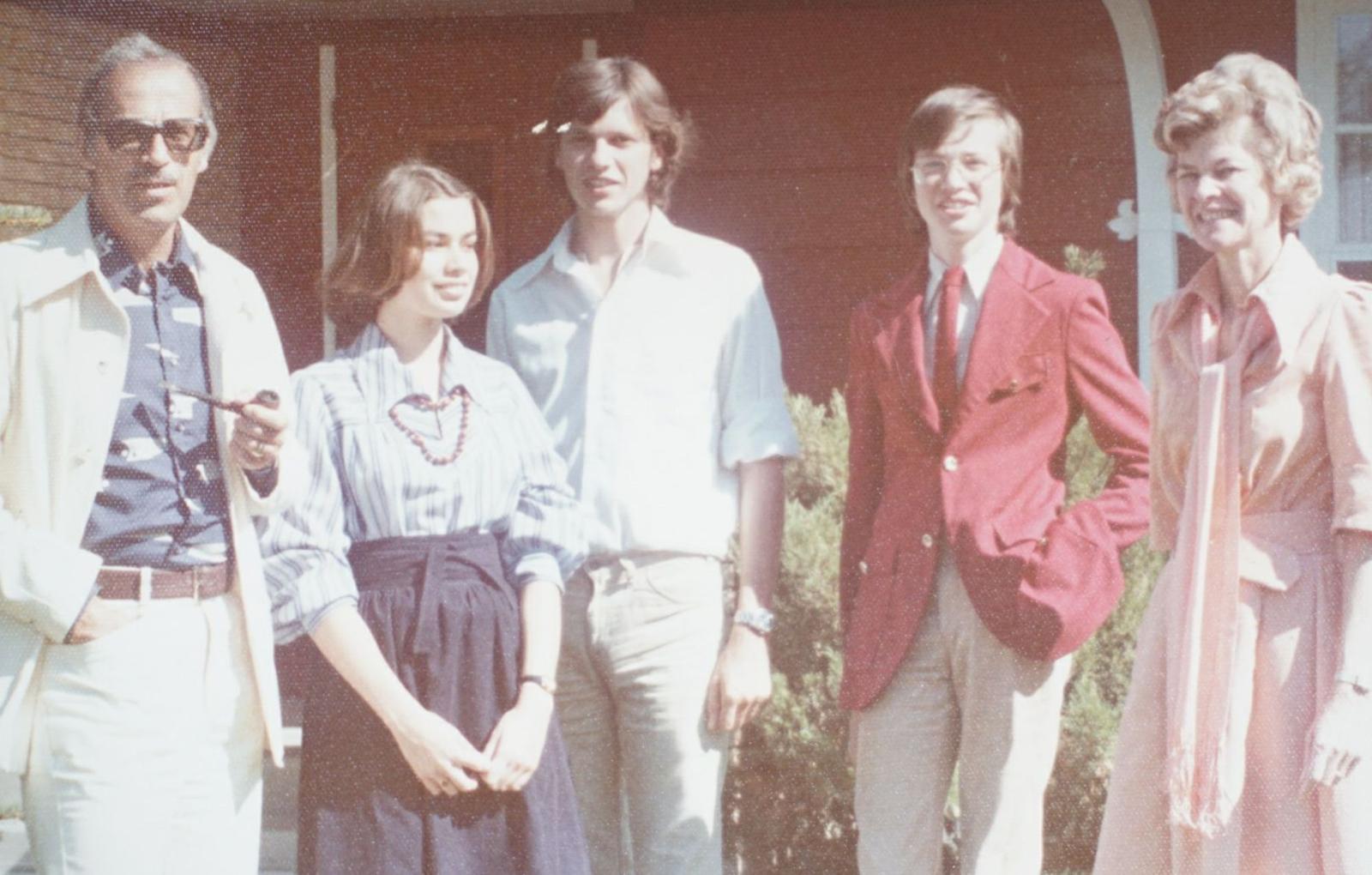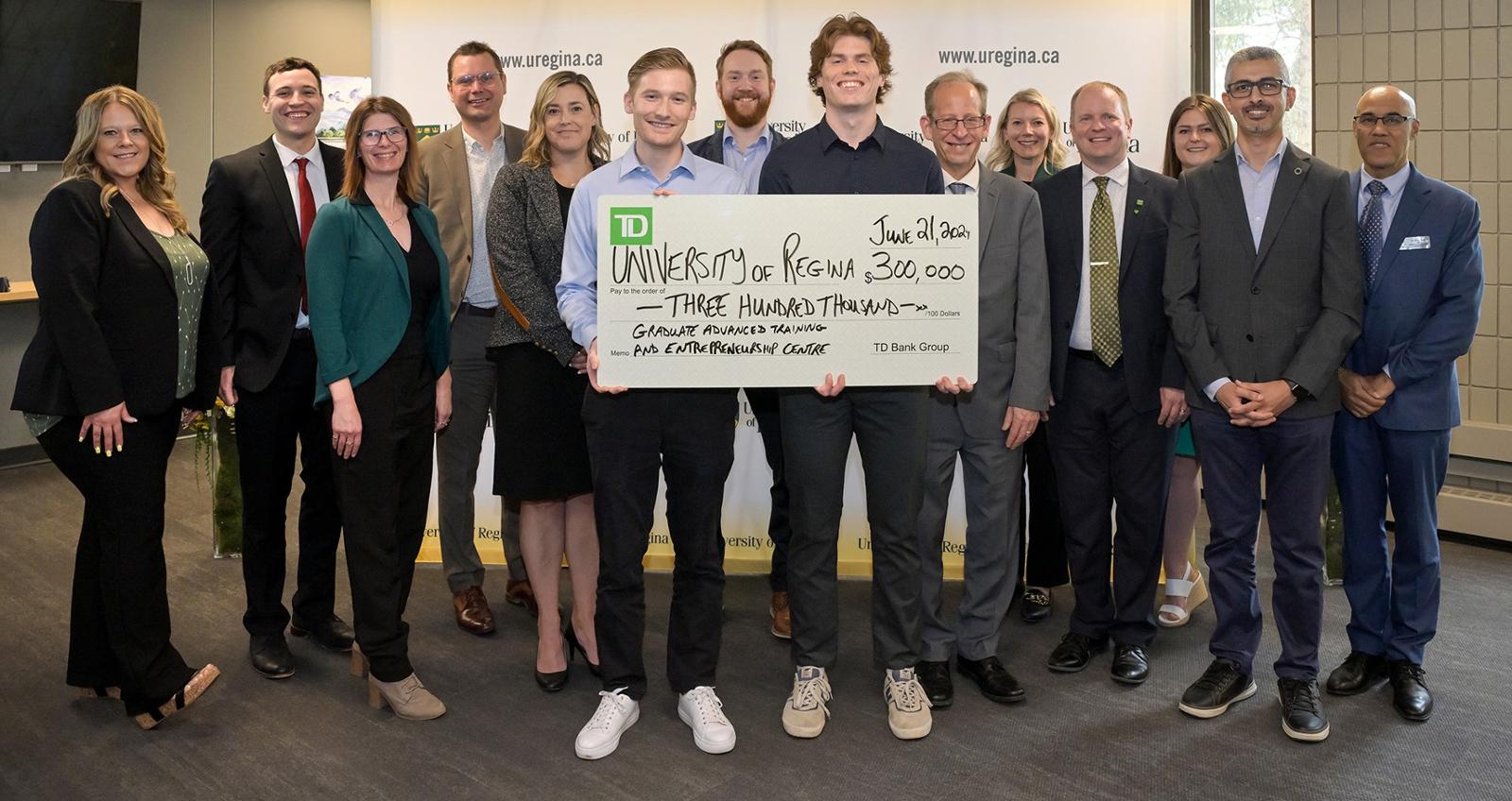Dr. Isabelle Dostaler was ready to start her new role as the University of Regina’s new Provost and Vice-President (Academic) on October 1, 2022. Then, she was diagnosed with lymphoma and her plans were put on hold while she began to receive treatment.
Dr. Dostaler recently found out that she is in remission, and is now able to take up her duties at the University of Regina on June 1, 2023.
We had the opportunity to talk to Dr. Dostaler about her new role, why she chose the University of Regina, reconciliation, and how her outlook on things has changed since her cancer diagnosis.
What exactly is a Provost?
What will you be responsible for as the Provost and Vice-President (Academic)?
In business language, the President is the Chief Executive Officer and the Provost is the Chief Operating Officer. In a sense, you are doing everything that needs to be done for the President’s vision to be a reality. As the Vice-President (Academic), you are really focused on the academic mission but you also need to be mindful to use the limited resources available as strategically as possible.
When I was an undergrad student, I didn’t know what a Provost was and I suspect it is the same for our students today. The image I would use to illustrate the Provost’s role is the following: think about a duck on a river swimming very, very smoothly. That should be how our students feel when they go through their experience with us. Yes, it is challenging and can be stressful—our students are very busy with their studies—but all the rest, registering for courses, obtaining program advice, etc., should go smoothly.
We need to make sure that students have the best experience possible when they are with us. This is not just about what they learn, but also about the community we provide. —Dr. Isabelle Dostaler, Provost and Vice-President (Academic)
You can also think about the duck’s legs paddling quickly beneath the water. In a sense, that is the job of the Provost. The Provost is working hard behind the backdrop to ensure that our academic mission is fulfilled and that our students have the best experience possible. Of course, this can only happen if faculty and staff are engaged and properly supported in everything they do.
I believe that some of the most important relationships in a university are between faculty and students. It’s the role of the Provost to make sure that the right conditions exist for those relationships to be as positive as possible.
(You can find a full position profile here)
What initially drew you to this position and the University of Regina?
I am a business professor and my expertise is in the field of strategy. Strategy is about looking at the full picture, and being interested in the direction of the organization as a whole. This outlook has painted my life as an academic. I started my career in a large departmentalized Faculty of Business, but as a department member, I didn’t have a department perspective; I had a faculty-level perspective and considered the unit as a whole.
After I became a dean the same thing happened. I reported to a provost who was an inspiration to me, and I was constantly looking at the university as a whole. That was my motivation—I knew I could contribute here in that capacity.
A large part of the provost’s job is to work with the deans. It’s very important to support the deans, as they are in a challenging position, combining external and internal roles. Deans advocate for the academic unit they lead and make sure that the programs their units offer are attractive to students. Deans also need to maintain harmony in their faculty. I look forward to working with our deans, as I know that together we can contribute to the institution and to our community. There is profound meaning in the work that we do at universities.
As for the University of Regina, I am pretty adventurous! I left my home province of Québec in 2017 to become dean of the Faculty of Business at Memorial University, Newfoundland and Labrador. I really became a Newfoundlander while I was there. Prior to that I did my PhD in the UK and I embraced the British lifestyle.
You can follow Dr. Dostaler on Twitter @IDostaler and Instagram @isabelle.dostaler
I was really interested in discovering a new place. Because there are only two universities in the province we can really play a significant role in Saskatchewan. The sense of place was important at MUN, and I am pretty sure it is the same at the University of Regina. To me, this is really attractive.
In your opinion, what are the most important areas of focus for universities when it comes to their students?
We need to make sure that students come to us, and that we offer programs that are attractive so students want to enroll. This applies to both domestic and international students.
However, universities can’t just attract students for the sake of attracting them. We need to make sure that students have the best experience possible when they are with us. This is not just about what they learn, but also about the community we provide.
I have a lifelong learning approach. At Memorial, I used to tell students at the beginning of the term ‘You’re starting today, but your life with us is not going to finish when you walk on stage and I put the hood on you. You’re going to be part of this family forever.’
When we welcome students, we need to have the mindset that they will stay in the University of Regina family forever. The University of Regina tagline “Go Far, Together” is very fitting. They need to cherish their memories of their time with us. Happy students and happy graduates, are the best ambassadors.
What does reconciliation mean to you?
As a settler and a white woman, this is a question that I consider with a lot of humility.
In Québec, we refer to Indigenous communities as “autochtones.” People who are not from Indigenous communities are called “allochtones.” Being an allochtone means that I came after. We came after. We didn’t discover anything. All of this, this great land was here and there were communities on this land making it what it was. I think we need to constantly remind ourselves that we came after.
I am not even sure that “reconciliation” is the right term. The word reconciliation means that two parties were fighting and now they decided to stop fighting and co-exist. That’s not what happened. We invaded and we did nasty things. Reconciliation, from my standpoint, means making amends. In fact, we are not done yet with the “truth” part of this important process.
We often focus on the struggles of Indigenous communities, but we should also celebrate Indigenous success. Reconciliation means that things need to get better for Indigenous communities and we need to celebrate their success. In the western world, we tend to celebrate individual successes, but when you look at Indigenous communities, it’s really the community that is at the centre of everything. It’s very inspiring.
Reconciliation is about making amends and being inspired. It is a complicated question and it cannot be taken lightly.
Your arrival at the U of R has been delayed due to being diagnosed with lymphoma and receiving treatment.
How has this experience changed you personally and professionally?
Everybody has had, or will have, direct or indirect experiences with cancer. I have lost close friends and family members due to cancer, most people have. It’s a life threatening thing. I knew I had an 80% chance that the treatment would work. It was scary because chemotherapy was my only option. Radiation or surgery was not possible in my case. I often asked myself “what if I am in the 20%?” That is a humbling experience.
I recently learned that I am in remission and I feel very well.
I am extremely grateful for how supported I felt by the University of Regina community, starting with President Keshen. It’s pretty awesome when you have to go through something like this, yet you know that the institution is waiting for you, and telling you that it’s all fine and to look after your health. I am also very grateful to Provost Dr. david Gregory who extended his term until my arrival.
I feel really fortunate. Lots of people in that situation don’t have a dream job waiting for them.
Banner photo credit: Isabelle Dostaler
About the University of Regina
Set in the heart of the Canadian prairies we are a comprehensive, mid-sized university where the opportunities are as limitless as the horizon. Our campuses are on Treaty 4 and 6 - the territories of the nêhiyawak, Anihšināpēk, Dakota, Lakota, and Nakoda peoples, and the homeland of the Michif/Métis nation. It is our responsibility to strengthen relationships with Indigenous communities to build a more inclusive future for all. Our three federated colleges, 10 faculties, 25 academic departments, and 18 research centres foster innovative research with practical and theoretical applications. We are committed to cultivating the potential of our 16,000 students and supporting their health and well-being. We take learning beyond the classroom through work and volunteer experiences to develop career-ready graduates.
Let’s go far, together.




